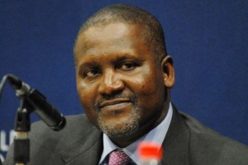 Tanzania Daily News, Dar es Salaam – Medical practitioners in the country have expressed their concern on increasing trends where religious sects are interfering in their profession that is causing delays in the treatment of patients.
Tanzania Daily News, Dar es Salaam – Medical practitioners in the country have expressed their concern on increasing trends where religious sects are interfering in their profession that is causing delays in the treatment of patients.
Speaking exclusively to the ‘Sunday News’ at the 3rd National Quality Health Improvement Forum, the Tanzania Charitable Hospitals Trust Fund Director General, Dr Jerome Mkiramweni said that as a medical practitioner he was aware of the role religion and faith plays in building a person’s personality, but the current trends were going too far.
“I understand the role religion plays in any society but unless these new sects are a new form of science, I think there is grave need to address this issue before things get out of hand completely,” he said.
Dr Mkiramweni said that evidence from daily practice was showing that there were some sects today that have gone as far as claiming to be able to resurrect humans, while others forbade transfusion opting to die because of the belief that they will go to heaven.
Citing a personal experience, he said that he had a case of an Institute of Financial Management (IFM) student who was suffering from cerebral malaria and after the fourth dose of quinine injections had started showingsigns of improvement but her family discharged her from the hospital, put her in prayer groups where she died after a couple of days.
“It is for such reasons that we as medical practitioners feel that there is a need to keep religious beliefs such as these far away from medicine,” he said. Dr Mkiramweni advocated for an in-depth research to be conducted to know the extent of this growing trend and how it is causing delays in the treatment of patients in the country and how it is threatening the medical profession.
Concurring with the views of Dr Mkiramweni, retired quality improvement expert, Dr Henock Ngonyani said that these current trends should be a national concern because the repercussions of letting faith intervene with medicine and science were adverse. Dr Ngonyani said that there was need for medical practitioners to stand firm and speak against these trends lest the nation witness increased preventable deaths.
“We all have faith and acknowledge the role it plays in any society and so all we are saying is that religion should not interfere in science,” he said.
Also going along with the previous speakers, Senior Quality Improvement Advisor for Community Health and Nutrition, Dr Elizabeth Hizza said that the major concern of people in the medical fraternity is the fact that opting for prayer groups before seeking a medical opinion means that the disease process gets further imbedded and results in more complication.
Dr Hizza said that other disadvantages of this growing trend is the fact that costs are increased and for cases of pregnant women, there are higher chances of complications during and after child birth.
Reacting to the faith/ medicine conflict, Sheikh Biswara Ibrahim of Mbezi Beach Noor Mosque said that in Islamic believes, every illness has a cure except old age and death. Sheikh Ibrahim said that in his faith, prayers are used asking God to quicken the pace for the medication and not to replace it with medical treatment.
“I have a patient in MNH who is suffering from tetanus. The doctors there allow for prayers to be conducted but they should be done silently. The person sleeping adjacent to be patient is a born again Christian and their prayers tend to be very loud, the priest has several times tried to discharge the patient and join prayer groups but the family has stood firm,” he said.
Evangelist Assembles of God Tanzania Reverend Protas Rubeli said that it was wrong to replace medicine with prayers saying it was morally and ethically wrong.
He said that God has instilled people with the gift of healing, adding that Apostle Luke apart from being a holy person, he was also a scientist and medical doctor.
“Clerics should stop these things. People should remember that continued medicine doesn’t stop God’s ability to heal someone who is faithful. Jesus is quoted to have told someone that faith has made you well,” he said.
A Kinondoni resident, Mr Michael Ndulele said that he believed that more and more people were opting for prayers because increasingly medical drugs were proving to be ineffective and people had lost trust in them.










